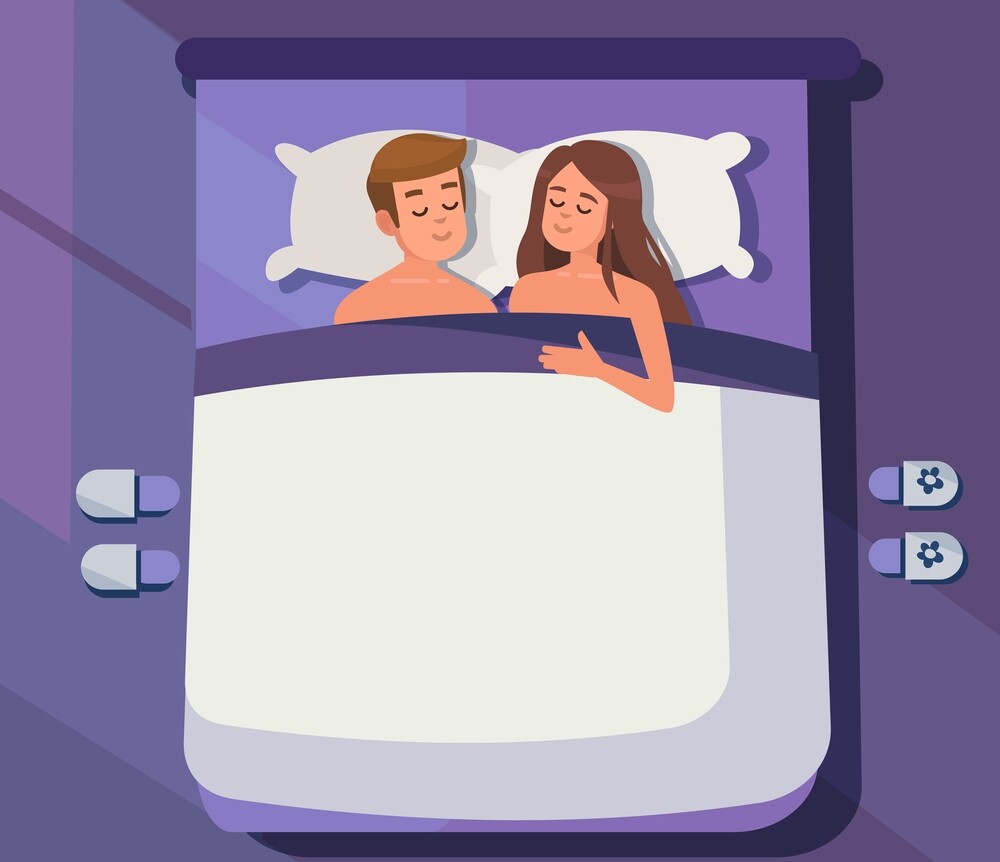It seems that women are doomed to sleep badly. Hormonal fluctuations, children and snoring partners are only three of the causes.
No cliché: Women sleep worse
The woman stares broodingly at the ceiling, while her lover snores in a relaxed manner. She sits wide awake in the airplane, while he dreams deep and hard about his vacation in the next seat. When the baby cries, mum jumps up, while dad doesn’t notice anything. All just clichés?
No, studies have shown that women sleep worse than men. According to a survey by the University of Gießen, around one in four women have sleep problems, and one in eight men. Young women usually still sleep well, and sleep disorders increase after midlife.
Men can fall asleep almost anywhere
“Women sleep longer, are more likely to have problems falling asleep and generally suffer more frequently from sleep disorders,” sleep researcher Jürgen Zulley from the University of Regensburg told “Die Zeit”. “Men are a bit less sensitive, they can fall asleep almost anywhere.”
The trouble is, it’s even harder to fall asleep when you lie awake and are annoyed that you can’t sleep. It’s a vicious circle.
But why do women suffer more from insomnia than men? The German Society for Sleep Research and Sleep Medicine (DGSM) and sleep researchers have identified several reasons for the lack of sleep in women:
Sleep disorders in women: The causes
- Stress! Job, husband, kids, parents, me – and getting everything under control: Women often suffer more than men from the multiple stresses of family and job.
- Menstrually induced sleep disorders: The hormonal fluctuations during the cycle cause sleep problems, especially at the beginning of menstruation.
- Pregnancies: Particularly in the last third of a pregnancy, the quality of sleep of the expectant mother often deteriorates significantly.
- Children: After pregnancy it gets worse – nothing is more sleep-robbing than a baby who wants to be cared for around the clock and a toddler who wakes up frequently.
- When the children finally sleep through, the mother usually keeps her light sleep.
- Menopause: Now sleep becomes even lighter and more fragmented. Hot flushes, depressive moods and sleep apnoea also contribute to this. In this phase of life, 54 percent of women already complain of lack of sleep.
- Anxiety and depression cause sleep disorders – and vice versa! Doctors diagnose depression in women about twice as often as in men.
- Noise: The partner snores (and rolls around in bed)
- Nightly compulsion to eat: Some women wake up and cannot go back to sleep until they have eaten something.
What you can do about it
- Take regular exercise (at least four hours before going to bed)
- Maintain a regular daily routine and regular bedtime
- Practice a relaxing sleep ritual (reading, bathing, meditating)
- Switch off devices early (TV, Smartphone)
- Keep bedroom dark and cool
- Avoid or reduce caffeine and alcohol in the evening – even small amounts can have a stimulating effect
- If nothing helps: please consult a doctor!

